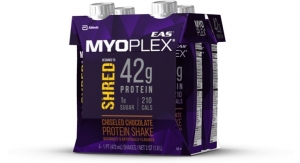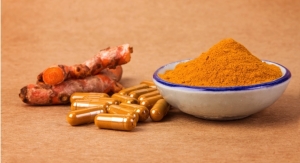01.30.17
With more mainstream lifestyle consumers buying into the sports nutrition market, products that assist in recovery from exercise are finding an expanded audience. Here are a few examples of ingredients and categories that formulators should consider when developing products in the sports nutrition/recovery market.
Protein & Amino Acids
Many experts contend that athletes need more protein, beyond recommended intake levels for the general adult population, in order to promote muscle adaptation during recovery from exercise. Specifically, athletes need help in repairing exercise-induced damage to muscle fibers and replenishing depleted energy stores.
According to the Gatorade Sports Science Institute, heavy resistance exercise increases the rates of both protein synthesis and breakdown in muscle for at least 24 hours after a workout. Unless a protein-containing meal is consumed during recovery, breakdown will exceed synthesis, resulting in the loss of muscle mass.
Additionally, muscle glycogen is the predominant fuel for energy during exercise, and the ability to rapidly replenish glycogen stores during recovery is important for athletes.
Branched-chain amino acids (BCAAs) like leucine, isoleucine and valine, can promote muscle protein synthesis and increase muscle growth over time. They can also be used to prevent fatigue in novice athletes.
A recent study involving physically active men published in the Journal of Sports Medicine indicated methylsulfonylmethane (MSM) appears to dampen the release of inflammatory molecules in response to exercise, resulting in a less incendiary environment, allowing cells to still have the capacity to mount an appropriate response to an additional stimulus after exercise.
Cherry & Pomegranate
Several studies have shown that sour cherry (Prunus cerasus), also known as Montmorency Cherry, can reduce post-exercise muscle fatigue, pain, and inflammation.
For example, a study published in Nutrients last year indicated Montmorency tart cherry concentrate supplementation is efficacious in accelerating recovery following prolonged, repeat sprint activity, such as soccer and rugby. According to the authors, the study offers further evidence that polyphenol-rich foods are effective in accelerating recovery following various types of strenuous exercise.
According to Brien Quirk, director of R&D, Draco Natural Products, supplementation with pomegranate juice can also reduce weakness and soreness after elbow flexor muscle exercise in resistance trained participants after eccentric exercise (Trombold, 2011). Delayed onset muscle soreness was generated in subjects by performing three sets of 20 unilateral eccentric elbow flexion exercises. Muscle soreness was measured at baseline and 2, 24, 48, 72, 96, and 168 hours after exercise. Elbow flexion strength was significantly higher in the 2 to 168-hour period post- exercise with pomegranate juice compared with that of placebo. Elbow flexor muscle soreness was also significantly reduced with pomegranate juice compared with that of placebo and at 48 and 72 hours post-exercise.
Energy Boosters
A critical component of athletic performance, energy-boosting ingredients have a strong position in the active nutrition market. Alongside sources of caffeine, B vitamins, ATP, and ribose, herbal ingredients like ginseng have a long history of use for energy and rejuvenation. For more on energy trends, click here.
Protein & Amino Acids
Many experts contend that athletes need more protein, beyond recommended intake levels for the general adult population, in order to promote muscle adaptation during recovery from exercise. Specifically, athletes need help in repairing exercise-induced damage to muscle fibers and replenishing depleted energy stores.
According to the Gatorade Sports Science Institute, heavy resistance exercise increases the rates of both protein synthesis and breakdown in muscle for at least 24 hours after a workout. Unless a protein-containing meal is consumed during recovery, breakdown will exceed synthesis, resulting in the loss of muscle mass.
Additionally, muscle glycogen is the predominant fuel for energy during exercise, and the ability to rapidly replenish glycogen stores during recovery is important for athletes.
Branched-chain amino acids (BCAAs) like leucine, isoleucine and valine, can promote muscle protein synthesis and increase muscle growth over time. They can also be used to prevent fatigue in novice athletes.
A recent study involving physically active men published in the Journal of Sports Medicine indicated methylsulfonylmethane (MSM) appears to dampen the release of inflammatory molecules in response to exercise, resulting in a less incendiary environment, allowing cells to still have the capacity to mount an appropriate response to an additional stimulus after exercise.
Cherry & Pomegranate
Several studies have shown that sour cherry (Prunus cerasus), also known as Montmorency Cherry, can reduce post-exercise muscle fatigue, pain, and inflammation.
For example, a study published in Nutrients last year indicated Montmorency tart cherry concentrate supplementation is efficacious in accelerating recovery following prolonged, repeat sprint activity, such as soccer and rugby. According to the authors, the study offers further evidence that polyphenol-rich foods are effective in accelerating recovery following various types of strenuous exercise.
According to Brien Quirk, director of R&D, Draco Natural Products, supplementation with pomegranate juice can also reduce weakness and soreness after elbow flexor muscle exercise in resistance trained participants after eccentric exercise (Trombold, 2011). Delayed onset muscle soreness was generated in subjects by performing three sets of 20 unilateral eccentric elbow flexion exercises. Muscle soreness was measured at baseline and 2, 24, 48, 72, 96, and 168 hours after exercise. Elbow flexion strength was significantly higher in the 2 to 168-hour period post- exercise with pomegranate juice compared with that of placebo. Elbow flexor muscle soreness was also significantly reduced with pomegranate juice compared with that of placebo and at 48 and 72 hours post-exercise.
Energy Boosters
A critical component of athletic performance, energy-boosting ingredients have a strong position in the active nutrition market. Alongside sources of caffeine, B vitamins, ATP, and ribose, herbal ingredients like ginseng have a long history of use for energy and rejuvenation. For more on energy trends, click here.
















